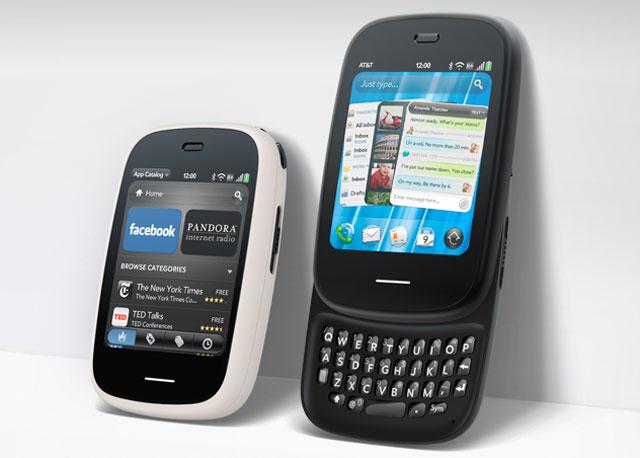
It's been a while since I've been able to say that my handset or tablet was made by HP. Technically, I still can't say this, but it might not be long before that statement is entirely possible again with the news that HP plans on entering the smartphone market again, possibly as early as next week. However, instead of re-releasing with their webOS products, this time HP will be going with a more modern and more successful platform - Android.
Although it seems from the start that HP plans to keep things quiet and mostly to themselves by releasing a "Note-like" phone to pre-paid carriers and emerging markets, I do have to wonder if this is a small step in a much broader direction for the mobile veteran to re-enter the market. When webOS went under, it seemed like HP was no longer interested at all to compete in the smartphone market. And as a fan of webOS and the handsets they produced (I loved my little Palm Pixi) I was saddened when I heard that not only would we no longer see webOS handsets, but handsets from Palm and HP were a no-go as well as they were completely withdrawing from the smartphone market.
But now that they're back, I have to wonder what it is that we're going to see from them. Will they skin Android to be somewhat similar to webOS, or will it resemble the light skin they have over their Android-powered tablets already on the market? Is it a good idea to enter the market with a Note-like phone (or what I assume to be a phablet, rather) or should HP have gone with something a little smaller and a little more universal? These are all questions I want to have answered, but it's a question that only time will tell. Just by the fact that HP plans to attack pre-paid and emerging markets, I assume this is mostly just a test run to see if anybody even wants the products.
The last HP product I owned was a TouchPad. A last minute fire sale on the webOS tablet had people in a frenzy the entire week, as a (decent) tablet being sold for anything less than $200 was generally unheard of. The TouchPad was on sale for $99 for the 16GB version, and for just $99 the features you were getting at the time it really wasn't a bad deal at all. For as little application support that was offered on webOS, it had enough for me at the time and I did enjoy my time with the tablet when I had it. It was a solid, hefty device and I still stand by my opinion that webOS was one of the prettier mobile platforms that I would have liked to see progress alongside iOS, Android, BlackBerry and Windows Phone. But sometimes that's just the way the cookie crumbles.
If the hardware is anything like we saw in the Palm Pre, Palm Pixi or the TouchPad then I think they could have something on their hands. They were distinctly unique devices and I still feel like the market has room for some of the same design fundamentals that they used to use. For a lot of people, I almost feel like that would be a welcome change - perhaps a little nostalgia when it comes to the hardware, but being able to experience the "newness" of having such a device run on a recent version of Android.
Regardless of the outcome, I know I'm excited to see HP enter the market again, and intrigued at how this will play out for them. I hope for the best for them, but like every other manufacturer who is trying to make it to the top they're going to have to bring something new to the table in order to draw in people's interest again.
Readers, will you be keeping an eye on HP's new smartphone, or have you already given up on the company's resurfacing? Let us know your thoughts in the comments below!
Images via Arstechnica, TechCrunch